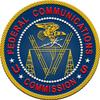The use of computers and the Internet in conducting warfare in cyberspace.
Cybersecurity and Cyberwarfare
Massive Technological Disruption: Downed Power Grids, GPS Outages and Solar Flares
Since the 2016 election attack by Russia, public attention has focused on cyberattacks. The risk is getting only worse: The more wired everyday society becomes, the more reliant it is on interlocking technology systems that were never designed with security in mind. The increasing complexity and interconnectedness of the various networks that power everyday life increases the chances of what Jason Matheny calls a “digital flubber” incident—the possibility of an autonomous system working as intended, yet spiraling and cascading with unintended and unforeseen consequences.
House Armed Services Committee Members Take Aim at FCC's Ligado Decision
In the wake of a Senate Armed Services Committee hearing on the subject of allowing Ligado to operate a 5G service adjacent to GPS spectrum (a hearing that saw the Federal Communications Commission hammered by legislators, military brass, and even iconic pilot Sully Sullenberger), almost two dozen bipartisan members of the House Armed Services Committee have written to the FCC to express their "deep concern." Lead signatories on the letter include Strategic Forces Subcommittee Chairman Jim Cooper (D-TN) and Ranking Member Michael Turner (R-OH) They said that while Ligado has argued that D
America Is Working Together to Lead in 5G
Recently, more than 30 companies came together to announce a coalition to promote policies that support implementing open 5G Radio Access Network (RAN) technology, a critical part of deploying 5G technology. This commitment by the private sector to advance the same objectives shows the widespread priority to secure our domestic and global communications supply chain, and it’s a great step forward to encourage our allies to follow suit.
Coronavirus Casts Deep Chill Over U.S.-China Relations
Relations between the US and China, strained for years, have deteriorated at a rapid clip in recent months, leaving the two nations with fewer shared interests and a growing list of conflicts. The Trump administration has moved to involve much of the US government in a campaign that includes investigations, prosecutions and export restrictions.
FCC, Ligado Draw Major Fire in Armed Services Committee
The Federal Communications Commission's decision to allow a new terrestrial broadband service alongside spectrum for critical GPS uses drew fire from both sides of the aisle, as well as top military brass, in a hearing in the Senate Armed Services Committee. The military brass in attendance had not changed their marching orders or their target, and the committee's chairman and ranking member were clearly in bipartisan agreement with the Department of Defence. Ligado took some issue with the fact that there were no witnesses scheduled from Ligado or from the FCC at the hearing.
Some Trump Officials Take Harder Actions on China During Pandemic
Some top Trump administration officials are moving to take a more aggressive stand against China on economic, diplomatic and scientific issues at the heart of the relationship between the world’s two superpowers, further fraying ties. The bitter information war over the virus has become a core part of the competition, but the Trump administration’s efforts to counter China have sharpened across the board.

FCC Refreshes Record in Executive Branch Review Process
The Federal Communications Commission refers certain applications to Executive Branch agencies when there is reportable foreign ownership in the applicant. On June 24, 2016, the FCC adopted a Notice of Proposed Rulemaking to improve the timeliness and transparency of the process involving referral of certain applications with reportable foreign ownership to Executive Branch agencies, including the Team Telecom agencies, for feedback on any national security, law enforcement, foreign policy, or trade policy concerns.

A US National Strategy for 5G and Future Wireless Innovation
5G will make wireless connectivity more flexible and better able to be tightly integrated into different functions throughout the economy. Accelerating a secure deployment will be a force multiplier for growth. The private sector will lead the 5G rollout, but governments need to help. Agencies should leverage 5G for their own processes and encourage its use in their related industries. State and local governments should eliminate barriers to deployment.
Reps Pallone, Walden, Guthrie, and Matsui Introduce Bill to Promote Competitive and Secure 5G Equipment
House Commerce Committee Chairman Frank Pallone, Jr. (D-NJ), Ranking Member Greg Walden (R-OR), and Reps Brett Guthrie (R-KY) and Doris Matsui (D-CA) introduced the “Utilizing Strategic Allied (USA) Telecommunications Act of 2020“ in the House of Representatives. The bill would authorize up to $750 million for a grant program administered by the US Department of Commerce, in consultation with the Federal Communications Commission and other federal agencies, to promote and accelerate the deployment and use of open interfaced, standards-based, and interoperable 5G networks throughout the US.

FCC Scrutinizes Four Chinese Government-Controlled Telecom Entities
The Federal Communications Commission issued Orders to Show Cause against four companies that are ultimately subject to the ownership and control of the Chinese government: China Telecom Americas, China Unicom Americas, Pacific Networks, and ComNet. The Orders direct the companies to explain why the FCC should not start the process of revoking their domestic and international section authorizations enabling them to operate in the US.

